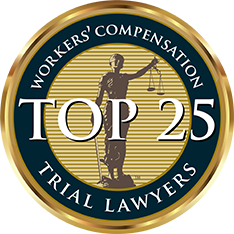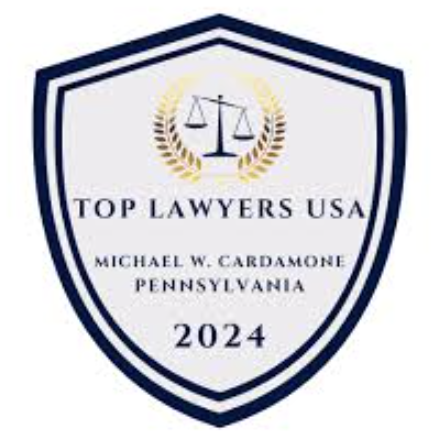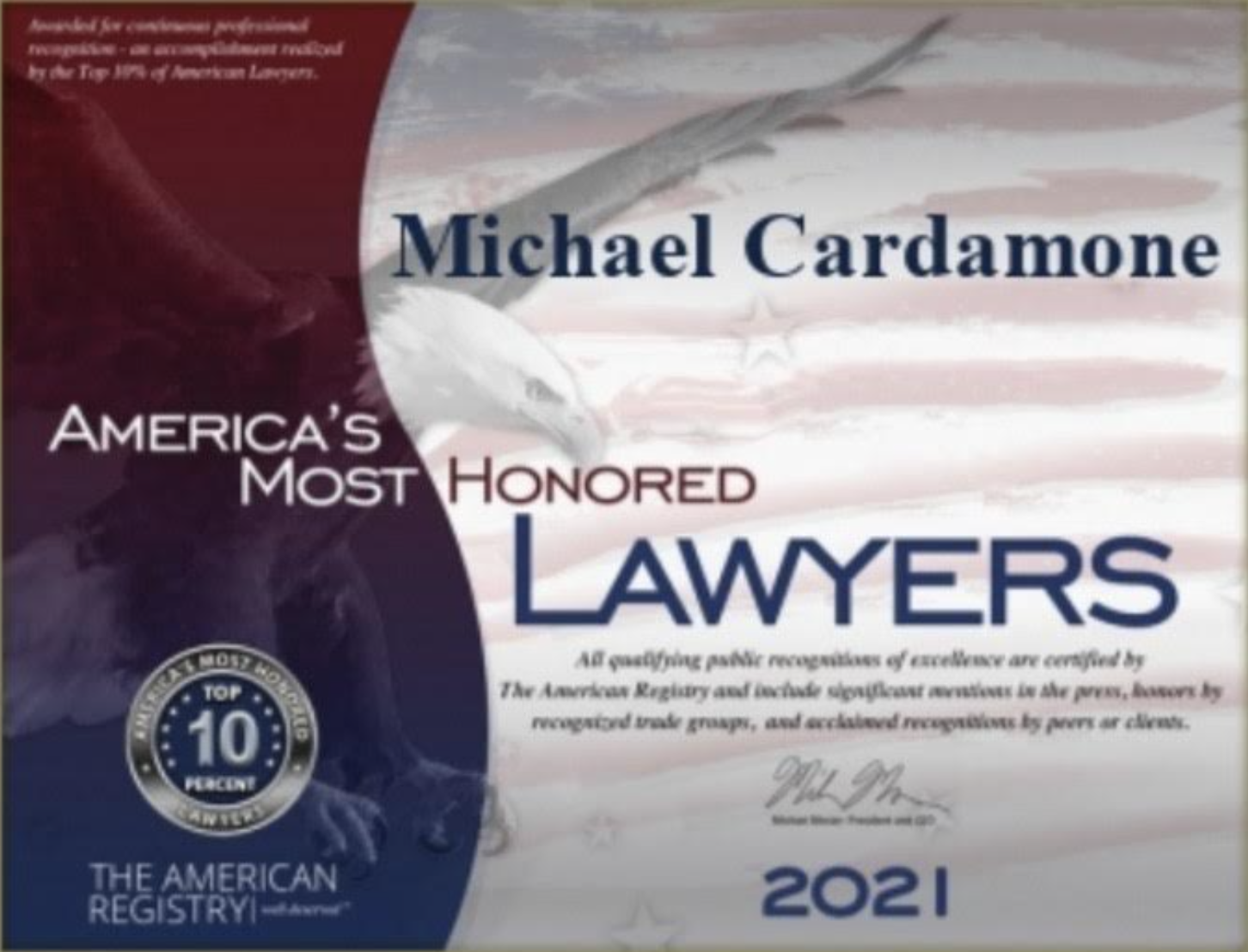In an Opinion dated August 9, 2022, Justice Jubelirer for the Commonwealth Court, held that the mere receipt of Social Security Disability benefits, and a pension, and not looking for work, wasn’t enough, given the “totality of circumstances” test to find that Claimant had voluntarily retired such that his wage loss benefits should be suspended. (Hi-Tech Flooring, Inc. vs. WCAB) (Santucci).
Claimant was a tile setter- and a union member since 1985. He injured his knee at work in August 2014. He received a pension from the union in October 2017 and he received Social Security Disability benefits, in part due to his knee injury. (and due to other conditions). Employer filed a Petiton to Review the Workers’ Compensation Appeal Board’s Order that reversed the WCJ (Worker’ Compensation Judge) Decision, which granted Employer’s Petition to Suspend, finding that Claimant voluntarily left the workforce by accepting the pension, by obtaining SSD benefits, and by not looking for new employment.

Image Source: unsplash/Sebastian Pichler
The Commownealth Court first reminds us that the Pennsylvania Work Comp Act is remedial and based on humanitarian principles. Next, it stressed that it’s Employer’s burden to show a claimant has retired. It then reminded us from prior case law that the receipt of a pension isn’t sufficient evidence that someone has withdrawn from the labor market. It then discussed the “totality of the circumstances” test, which applies here, to determine whether Claimant has chosen not to return to the workforce.
The Court, as part of the totality of circumstances test, also analyzed the SSD Decision which found that the knee injury- the work injury in this case, was at least a part of why he was awarded SSD benefits, and the knee alone caused him to be unable to do his pre-injury work. As such, he was essentially forced out of the workforce. Moreoever, Claimant testified that he didn’t know what other type of work he could do since he was a tile setter for 30 years- and that therefore, he didn’t know how his skills would transfer, and not that he had any intent to retire. This distinction was pivotal for the Court.
This was a fantastic Opinion that claimants can utilize as a roadmap, assuming the facts fit, to challenge a Petition to Suspend based on an allegation of a voluntary retirement. It was well reasoned and highlights the heavy burden for employers.
In a Commonwealth Court Opinion handed down today, written by Judge Dumas, (No. 1010 CD 2021), the Court affirmed a Workers’ Compensation Appeal Board and WCJ Decision that granted Employer’s Petition to Modify based on an IRE (Impairment Rating Evaluation) done per Act 111 for an injury that pre-dated the passage of Act 111. The Court, by doing this, noted the case is controlled by Pierson v. WCAB (252 A3d. 1169) (Cmwlth, PA 2021).
In Wescoe v WCAB, the case at hand, Claimant injured his back on September 8, 2011. On November 5, 2019, Employer filed a Petition to Modify based on an IRE that found a whole body impairment of 13%. Remember, after receipt of 104 weeks of TTD, an insurer can request an IRE- now performed under Act 111 which requires the 6th Edition of the AMA Guides and which reduced the threshold from 50% to 35%. The idea of an IRE in Pennsylania is to get an injured workers’ benefits to a partial status- and once on a partial, there is a 500 week limit/cap. It’s a way to limit their exposure on the wage loss end- and to see the proverbial light at the end of the tunnel.

Image Source: unsplash/Saúl Bucio
The Claimant tried to argue that Act 111 cannot be retroactively applied because it represents a substantive, not procedural, change in the law and by applying Act 111 to injuries that pre-date the enactment would impair his vested disability rights in violation of the Remedies Clause. (of the PA Constitution) The Commownealth Court, however, said that this is not a vested right. Again, they noted, that the Pierson case is directly controlling here. (see Opinion for more discussion about vested right concept)
This isn’t a great Opinion for injured workers, but it’s not the first on this issue. I agree with the Claimant’s arguments here, but unfortunately the Court isn’t seeing this the same way.
Once again, our firm is happy to be a sponsor for the North Penn High School Football Team. Our ad will be in the program at home games at Crawford Stadium this Fall. The Knights should be re-loaded and ready to have yet another great season, and hopefully a run at the state title. We hope to see you at some of the games, starting in just a few weeks.
Montgomery County, PA Top Lawyers[:]
Attorney Michael Cardamone, a leading Work Comp Attorney for injured workers in Pennsylvania, defeated an area hospital in litigation that lasted one year. The insurer claimed Cardamone’s client was “fully recovered”. Cardamone fought back, and sought amendment to the Notice of Compensation Payable, to add and refine the work-related diagnoses. The Work Comp Judge issued a Decision finding that Cardamone’s client, a nurse, was not recovered, and that the diagnoses of her treating physician, are accepted as her work-related diagnoses. Cardamone’s client continues to work for the Employer with restrictions, and ongoing medical benefits and litigation costs were granted.
[:]
In an unreported opinion, dated April 12, 2022, the Commonwealth Court, in Waziry vs. WCAB, No. 859 C.D. 2021, found that the Workers’ Compensation Judge’s conclusion that Pennsylvania had jurisdiction of this injury that occurred in Delaware, based on the fact that employment was “principally localized in Pennsylvania”, was correct. This judgment reverses the WCAB (Workers’ Compensation Appeal Board) ruling that they made using their own independent findings rather than determining whether the WCJ’s findings were supported by substantial evidence.
A Bit of Background
Claimant was a truck driver who lived in Texas. Employer drove a truck out to him and helped train him for a few weeks. Then he was on his own. He had to submit logbooks to the employer in Pennsylvania. He received his paychecks in Pennsylvania. His trips would start and end in Pennsylvania. He took the trick to Pennsylvania for maintenance too.

Image Source: unsplash/Imre Tömösvári
As the Commonwealth Court found, it was his only home base. Claimant was injured in December of 2017 in Delaware. But Pennsylvania can still have jurisdiction in certain circumstances. One of these is when the employment is principally localized in Pennsylvania. Principally localized means that employer has a place of business in Pennsylvania, and the employee regularly works at or from that place of business.
What are Extraterritorial Provisions of the Act?
Under these provisions, workers hired in one state but injured in another can still file for workers’ compensation claims for the state of their hire. These considerations determine whether the workers’ compensation benefits provided in one state extend to the injuries that an employee sustains in another state during the course of their employment.
These considerations mostly come into play in cases of out-of-state workers’ injuries.
The Final Verdict
Here, the Commonwealth Court agreed with the WCJ, reversing the Board, finding that Pennsylvania had jurisdiction since the employment was principally localized in Pennsylvania, citing the facts above about Claimant’s employment and connections to Pennsylvania.
The Commonwealth Court found therefore, that there was substantial evidence supporting the WCJ’s findings, and thus the WCJ did not commit an error of law.
If you have questions about this case or any issue relating to Pennsylvania Workers’ Compensation Law, call your Pennsylvania Workers’ Comp Attorney at any time (215) 206-9068 or email Michael@Cardamonelaw.com.
Let us review your case and we’ll advise. All we do is Work Comp so we’ll figure out, based on the facts of your case, whether any offer is fair. There are so many things to consider- the average weekly wage of the injured worker, their age, their education level, their level of disability, whether surgery is needed, whether restrictions are permanent, what vocational skills you have that are transferrable to the work place, and many more factors. Be careful not to compare your case to someone else’s. This is very common- “well my co-worker got $250,000 for his settlement and my injury is worse”. Well, do you really know their level of disability? What was his/her comp rate? How far did they get in school? Was the case in litigation whereby his/her checks were being threatened because an IME doctor is claiming a “full recovery”? What job skills and intellect do they possess? The last thing you should do is compare your case to another’s. Simply put, it’s a waste of your time.

Image Source: unsplash/Lyyfe Williams
Injured workers who don’t lawyer up will tend to get low ball offers. It is extremely important to call us (215) 206-9068 so we can review your case and get the most money possible. This is your earning power on the line! Get an expert/specialist involved! We don’t mess around with five areas of law- all we do is Work Comp for injured workers- making our firm rare.
We’re here and available for you so call or email- Michael@CardamoneLaw.com
Pennsylvania Work Comp Settlement Lawyers
Theoretically, the wage loss and medical benefits can last a lifetime. However, this is exceedingly rare. Why is it rare? There are many reasons. First, some people will recover from their injuries. Also, many injured workers will settle their case for a lump sum rather than taking a risk in court in terms of having their benefits reduced or terminated. But the biggest reason is a concept called Partial Disability. Once an injured worker in Pennsylvania is converted to a Partial Disability status, the wage loss is capped at 500 weeks which is approximately 9.5 years.
Temporary Total Disability vs. Partial Disability
Let’s review the two types of situations with respect to wage loss benefits. One is called TTD- Temporary Total Disability. This is when you are out of work, receiving a full work comp check due to no earnings as a result of the work injury. This can last a lifetime, but again, that’s a rare situation. The other scenario is is Partial Disability- which has a limit of 500 weeks under the Pennsylvania Workers’ Compensation Act. An injured worker is on Partial Disability if they are earning money post injury, or if the Judge finds an earning power, or if the injured worker has reached maximum medical improvement (MMI) and undergone an IRE- Impairment Rating Evaluation which resulted in a whole body impairment of under 35%.
How to Get Partial Disability Benefits in Pennsylvania
There are two main ways to be converted to Partial Disability in Pennsylvania Workers’ Compensation cases. First, if the injured worker has an earning power, whether by actually working after the injury, or as a result of an Impairment Rating Evaluation, then the 500 weeks starts to run. With respect to earning power, if an injured worker is working after the work-related injury, but earning less than the pre-injury average weekly wage, then they get Partial Disability- 2/3 of the difference between the pre-injury average weekly wage, and the actual earnings post injury. However, even if the injured worker isn’t actually working, they can be converted to a Partial Disability status. How so? By way of a Labor Market Survey/Earning Power Assessment where the insurer hires a vocational expert to establish an earning power. If if the jobs don’t result in a job offer, the Work Comp Judge can find that the injured worker can handle the jobs from a vocational ability and physical capacity standpoint. Similarly, if the pre-injury Employer offers a job and the assigned Work Comp Judge believes the worker can handle it, even if they aren’t actually working, the conversion can take place and wage loss benefits can be reduced accordingly.
Why is it Rare for an Injured Worker to Stay on TTD for a Long Time?
One word- Independent Medical Exams! (well, three words, but one term) These are biased exams, that can happen every six months or so, whereby the insurance company hand selects a doctor to examine you, to review records, and to write a report with his/her opinions. They usually favor the insurer in some way, if not completely. So the insurance companies gain leverage this way and many cases settle as a result of the threat that a Judge could side with their doctor over your own treating physician. Also, some people have minor injuries and recover and go back to work- either with the time of injury employer, or another employer. Moreover, its’ extremely difficult to meet the 35% IRE threshold, so once an injured worker is on TTD for 2 years, (104 weeks), the insurer will request the IRE- and probably 95-99% of exams will fall under the 35% threshold, which means the worker gets put on partial disability status- and therefore, the 500 weeks begins to run. In other cases, the matter settles fully for a Compromise & Release, and sometimes a case goes to a Decision from a Workers’ Compensation Judge and the Judge finds an earning power or a full recovery. So when you put all these scenarios together, you don’t find many situations where an injured workers is on TTD for more than 3 to 5 years. It happens, but it’s not real frequent.
As for medical benefits, these tend to last longer. Why? There are fewer mechanisms to end those benefits. They end with a full Compromise & Release of the claim, or if a Judge finds a full recovery after a Petition to Terminate is filed/litigated. (or if it’s stipulated to). Of course, when you have open medical benefits, they are subject to challenge by way of Utilization Review- which is a challenge as to whether certain treatment is reasonable and necessary. We’ll discuss that in another blog post.
Our Workers’ Comp Attorneys Can Help
For more information, always free free to contact a Pennsylvania Workers’ Comp Lawyer at (215) 206-9068.
On December 22, 2021, the Supreme Court of Pennsylvania, in Lorino vs. WCAB, reversed the Commonwealth Court and held that in cases where claimant is victorious, a Work Comp Judge may, at his or her discretion, award attorneys’ fees to be paid by the work comp carrier. Prior to this case, fees would be awarded only where a reasonable contest wasn’t provided by the employer/insurer. (a reasonable contest would be a case where there is conflicting medical evidence by the two medical experts- one says a claimant is fully recovered and the other says they aren’t)
Why does this matter? In cases where wage loss is being paid, it’s easy for an injured worker to obtain counsel as the attorney has a clear way to get paid with victory- 20% of the wage loss benefits in most cases. But when an injured worker has a “medical only” case whereby no wage loss is being paid, it’s much more difficult for the worker to get counsel as the attorney would have to charge an hourly rate and many injured workers are struggling and cannot afford that- or the attorney had to have hoped for an award of attorney’s fees which Work Comp Judges don’t often award. This case will make it easier for injured workers to get counsel and level the playing field. However, the ruling isn’t just applicable to “medical only” cases. In this case- Lorino– it was a medical only claim.
The Court began its analysis, noting that due to the matter involving statutory interpretation, the standard of review was de novo, and the scope of review was plenary. Of course, the Court looked at the plain language of the relevant part of the Act at issue:
Section 440(a) provides:
In any contested case where the insurer has contested liability in whole or in part, including contested cases involving petitions to terminate . . ., the employee . . . in whose favor the matter at issue has been finally determined in whole or in part shall be awarded, in addition to the award for compensation, a reasonable sum for costs incurred for attorney’s fee, witnesses, necessary medical examination, and the value of unreimbursed lost time to attend the proceedings: Provided, That cost for attorney fees may be excluded when a reasonable basis for the contest has been established by the employer or the insurer. (emphasis added)
The Court went on to reason:
“The term “shall” establishes a mandatory duty, whereas the term “may” connotates an act that is permissive, but not mandated or required. Indeed, in Ramich, we specifically addressed the term “shall” in the context of Section 440(a) when we considered whether a claimant must request attorney’s fees on the record in order to receive such an award. In holding there was no such requirement, we observed: “[t]he language of Section 440(a) is plain and unambiguous. The legislature used ‘shall’ to describe the duty of the WCJ in awarding fees for an unreasonable contest and it is clear that this provision is a mandatory directive.” 770 A.2d at 322.
As the WCJ determined that the employer’s contest was unreasonable in Ramich, we did not address the last sentence of Section 440(a) at issue herein.
Furthermore, we have explained that, when the legislature uses the terms “shall” and “may” in the same section of a statute, it is a clear indication that the legislature intends certain actions to be mandatory, and others discretionary. For example, our decision in Zimmerman is illustrative in that regard. Therein, despite the Attorney General’s determination that certain proposed agency regulations were without statutory authority, the agency published the regulations in the Pennsylvania Bulletin, rendering them immediately effective. The Attorney General sought to stay promulgation of the regulations pursuant to Section 204(b) of the Commonwealth Attorneys Act, 71 P.S. § 732-101 et seq. The Commonwealth Court denied the application for stay, and the Attorney General appealed.”
Based on the established meaning of the terms “shall” and “may,” under Section 440, when a contested case is resolved in favor of an employee, the Court found that a reasonable sum for attorney’s fees shall be awarded to the claimant. And, that such an award is mandatory. However, where the employer has established a reasonable basis for the contest, an award of attorney’s fees may be excluded. In other words, the WCJ is permitted, but not required, to exclude an award of attorney’s fees.
This is a groundbreaking and outstanding case for injured workers. There is little doubt, however, that this issue will be litigated for years to come, as the Court did not give guidance on the “discretion” given to Work Comp Judges, leaving room for litigants to argue for more parameters and guidance on the topic.
Here is a link to the Lorino vs WCAB Opinion
If you have any questions about this case, call us (215) 206-9068
Pennsylvania Workers’ Comp Attorneys
In a unanimous Decision, the Supreme Court of Pennsylvania, in an Opinion written by Justice Munday, dated November 17, 2021, Jonathan Peters v. WCAB (Cintas Corp.) defined the standard for injured traveling employees (an employee with no fixed place of work) under the Pennsylvania Worker’s Compensation Act.
They noted that courts have consistently held and applied a presumption: “when a traveling employee is injured after setting out on the business of his or her employer, it is presumed that he or she was furthering employer’s business at the time of injury unless the employer can rebut the presumption by showing that the employee’s action at some point prior to the injury were ‘so foreign to and removed from his or her usual employment that they constitute an abandonment of that employment‘”. (Roman vs. Workmen’s Comp Appeal Bd. (Dep’t of Envtl. Res.), 616 A.2d 128, 130 (Pa. Cmwlth. 1992))

Image Source: unsplash/Artur Tumasjan
Work Comp Dispute: Voluntary or Mandatory Employee Travel
The underlying facts are that Claimant, Jonathan Peters, a salesman for Cintas Corp, was a traveling employee. Part of his days were spent at the company’s Allentown office, and the rest of the time he traveled to meet with potential clients. On February 27, 2015, after work, he attended an Employer sponsored event at the Tilted Kilt in Allentown. To get there, he had to pass the exit for his home. It was a celebration, that was held regularly, for sales blitzes. There was a dispute in the pa work comp case Allentown about whether the meeting was voluntary or mandatory. On the way home from the event, he was in a car accident and injured.
Call Workers’ Comp Lawyer In Allentown
Claim Petition: Injured Employee in PA
Claimant filed a Claim Petition and the work comp case was bifurcated on the issue of whether the injured was in the course and scope of employment. The Pennsylvania Workers’ Compensation Judge ultimately denied the Claim Petition finding that Claimant was not furthering the interests of the Employer at the time of the accident and while some work topics were discussed at the Tilted Kilt, that doesn’t make it a business meeting, even if personal relationships were being cultivated. The WCJ rejected Claimant’s testimony that it was a mandatory meeting/gathering.
The Workers’ Compensation Appeal Board affirmed and Claimant appeal to the Commonwealth Court of Pennsylvania who, incredibly, got hung up on the idea that Claimant had to pass the exit for his home on the way to the Tilted Kilt, and therefore, that ended his homeward trip, deducting that he was no longer in the course and scope of employment after that point. They upheld the denial of the Claim Petition for injured employee in Pennsylvania.
Supreme Court of PA Ruling: Jonathan Peters v. WCAB (Cintas Corp.)
Claimant appealed to the Supreme Court of Pennsylvania (by filing a petition for allowance of appeal) who underscored the presumption, noted above, and applying this to the facts at hand, found that Claimant, by attending the Employer sponsored event after work, didn’t remove himself from his employment because the act of attending this event was not foreign to his employment- in fact, these sales blitz celebrations were regular.
The Court acknowledged that the WCJ found the event to be social and voluntary but the Supreme Court found that this doesn’t mean the event wasn’t work-related as it fostered personal relationships and morale. Justice Mundy noted that the fact that Claimant passed his home doesn’t mean he abandoned his employment- what if he had to pass the exit for his home during the day traveling to sales meetings- that doesn’t mean he’s not in the course of his employment merely because he passed his home exit.
Quick FAQs related to Workers’ Compensation In Pennsyvlania
This is an outstanding Opinion, well-reasoned, and will have far-reaching effects for injured workers in an increasingly mobile workforce! It will also help PA work comp lawyers in Allentown bring a great relief to the traveling workers across PA.
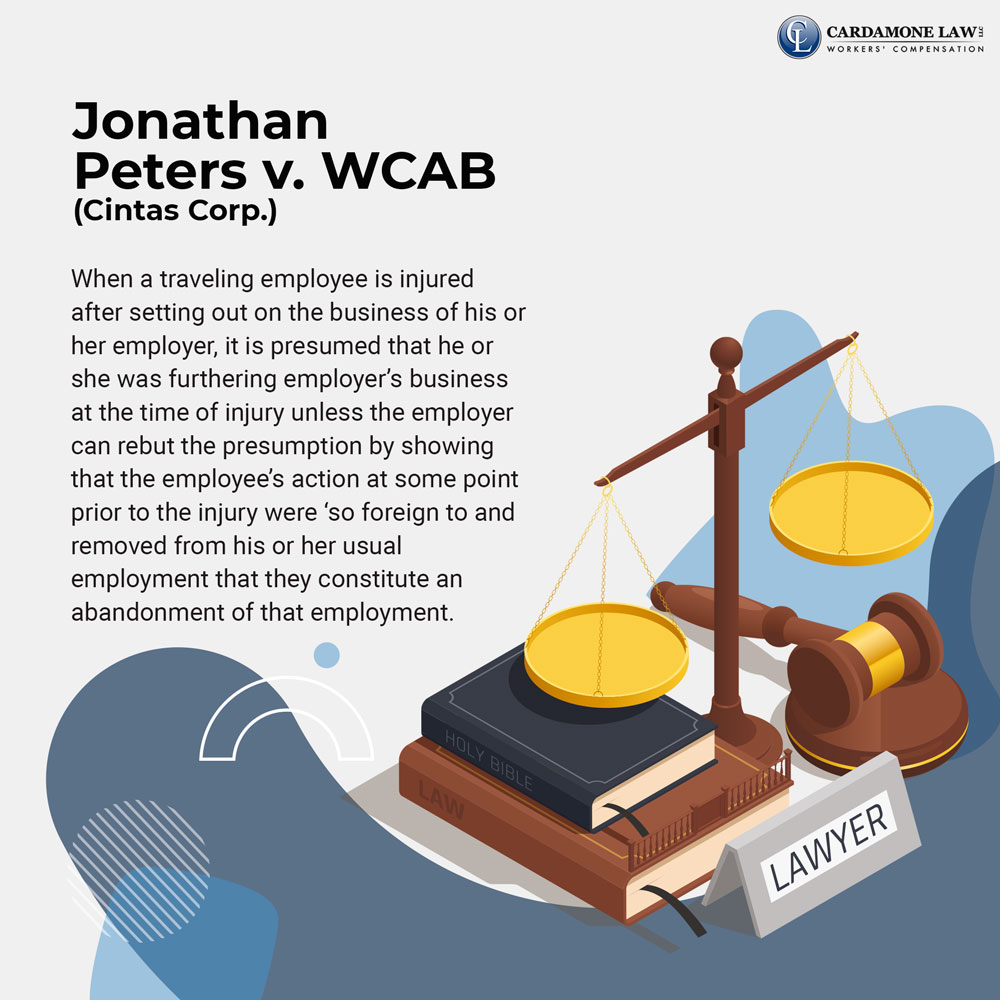
Contact Allentown Workers’ Compensation Lawyer!
Query- what actions would be considered so foreign to and removed from his usual employment such that the Employer could have shown an abandonment prior to the accident? Perhaps if Claimant then stopped at a friend’s house after the Tilted Kilt to hang out and watch a movie- this could be deemed foreign enough to be an abandonment. Note, the Allentown work comp case got remanded as there was a dispute about whether Claimant took any other actions after leaving the Tilted Kilt, Allentown and prior to the accident.
For questions related to work comp cases in Allentown, PA, reach out to our expert workers’ compensation lawyers at Cardamone Law, LLC: https://cardamonelaw.com/ – Our experienced PA work comp lawyers will review your case for free and offer consultation as needed. You can also reach out to our Allentown work comp lawyers via phone or email.
In an unreported Opinion of the Commonwealth Court of Pennsylvania, dated October 29, 2021, the Court affirmed the Decision of the Workers’ Compensation Appeal Board (WCAB) which affirmed a Workers’ Compensation Judge’s (WCJ) denial of a Fatal Claim Petition. (Timothy Walton vs. Iddings Brothers, LLC, No. 75 C.D. 2021). Stephanie Mesen, Claimant, widow of Timothy Walton, petitioned for fatal claim benefits.
The Background – Walton v. Iddings Bros. LLC
Stephanie Mesen (Claimant married Timothy Walton (Decedent) in December 2014. They were separated in 2017. Claimant filed for divorce in September 2018. On September 26, 2018, Decedent was working and fell from a roof and passed away from his injuries.

Image Source: pexels.com/Towfiqu barbhuiya
The Section 307 of PA Work Comp Act
Section 307 of the Pennsylvania Workers’ Compensation Act states, in pertinent part, as follows:
No compensation shall be payable under this section to a widow,
unless she was living with her deceased husband at the time of
his death, or was then actually dependent upon him and receiving
from him a substantial portion of her support.
77 P.S. §562 (emphasis added).
Walton v. Iddings Bros. LLC – The Fatal Claim Case!
Because Claimant was not living with Decedent when he died, she, as the surviving spouse, must show not only dependency but that Decedent provided a substantial portion of her support for fatal claim petition in a PA work comp case. The WCJ found that Claimant didn’t meet that burden after reviewing a lot of testimony and tax returns, bank records, a financial affidavit, etc. Much of this evidence was discussed in the Opinion in the Walton vs. Iddings Bros. LLC PA work comp petition on fatal claim.
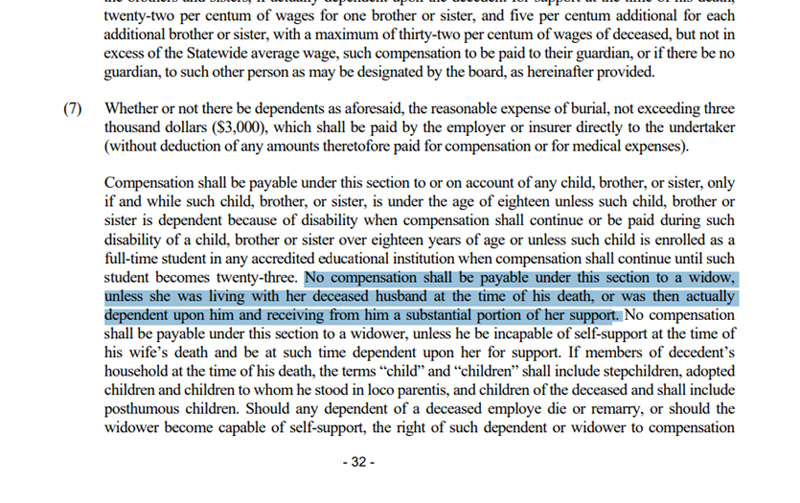
Source: PA Workers’ Compensation Act
The WCJ credited an Employer witness that testified Decedent was not in a financial position to support Claimant and in fact was not doing so. The WCJ also found that none of Claimant’s testimony was credible based on her demeanor and conflicts in her statements.
The Verdict!
The WCAB affirmed the WCJ Decision and the Commonwealth Court affirmed. The Court noted that the WCJ has exclusive province over questions of credibility and evidentiary weight and is free to accept or reject testimony of any witness, in whole, or in part. The Court will not disturb the findings of the WCJ when they are supported by substantial evidence in a fatal claim petition in Pennsylvania workers’ comp case. The Court, applying this standard, found that the WCJ supported the Decision with substantial evidence.
This Opinion underscores the importance of either winning in front of a WCJ, or settling the case. Once the WCJ issues a Decision, it’s very difficult to get it reversed. We see remands where a case is sent back to a WCJ- to review certain evidence or resolve a conflict, but those often result in the same outcome. But reversals are pretty rare. If the WCJ based his/her Decision on substantial, competent evidence, it’s likely game over, unless they committed an error of law. Many Decisions are appealed because a party believes there is evidence supporting their PA work injury case. But that’s not the standard on appeal. If the WCJ backed up his or her findings with substantial evidence and made credibility determinations therein, it’s not grounds for a reversal if you can point to other evidence that supports your position in a Pennsylvania fatal claim petition.
ALWAYS CALL CARDS!
For more information about Pennsylvania Workers’ Compensation Law, contact Cardamone Law, Pennsylvania Workers’ Comp Super Lawyers, at (215) 206-9068. You can also visit Cardamone Law’s office in Philadelphia, Lansdale, Blue Bell, Center Valley, and Lancaster in Pennsylvania, Email us at michael@cardamonelaw.com to set up an appointment.


